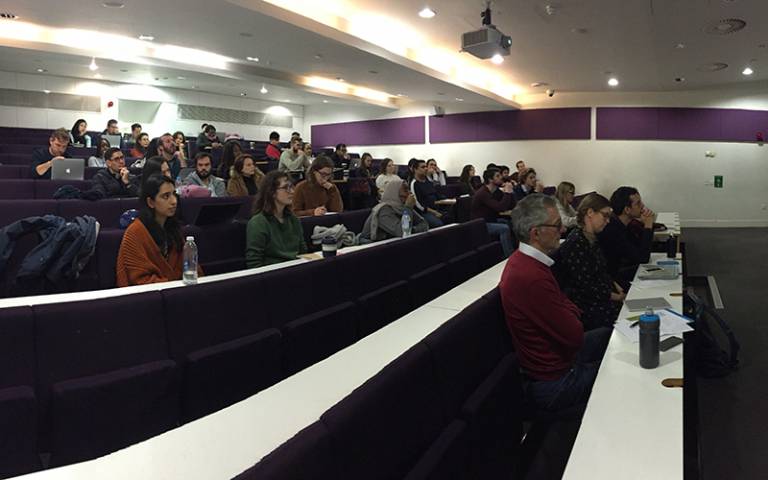Reports from DPU research project 'Bringing Agenda 2030 to life' launched online
20 January 2020
The project, undertaken alongside our partner charities - CAFOD and Caritas Africa - aimed to consider how to turn the sustainable development goals from a wish list into an action plan. The reports are available to download on our website.

In 2015 the 193 member states of the United Nations committed to the sustainable development goals (SDGs) as a blueprint for a peaceful and prosperous future. There are 17 SDGs containing 169 targets in total. But how can governments turn this long list of aspirations - from ending poverty and hunger to achieving gender equality – into concrete programmes? How should they choose which goals to prioritise, and how to implement them?
Our year-long research project offers one model for countries to make the SDGs their own. Our partner charities – CAFOD and Caritas Africa - set up participatory learning workshops in Kenya, Zambia, Sierra Leone and Liberia, bringing together ministers, MPs, academics, the media, religious representatives, NGO workers and others to discuss what these global principles mean for their countries.
Consultations often discuss needs and then identify new interventions. These workshops, on the other hand, drew attention to the valuable projects that were already taking place in the country. Rather than government acting alone, the discussions represented voices from a range of sectors of society.
Among the findings: that small transformative projects targeting vulnerable people can cut across the different SDGs, achieving several goals at once. For instance, a project to empower widows (whose husbands had died from Ebola) to start their own businesses tackled entrenched inequalities and promoted the participation of an excluded group in society. Other projects combined the goals of economic growth and sustainability – for instance, a programme to train charcoal burners in a Kenyan forest on how to make a living from the forest without destroying it.
Conclusion: reams of aspirational policy must be grounded in national realities and these participatory processes can help ensure national programmes draw on valuable work already taking place and allow wider civil society to participate and shape the agendas.
On Jan 15, the reports from these processes were launched at UCL with the participation of Andrea Rigon, Associate Professor and Principal Investigator of the project with our Kenyan Researcher, Lucy Espila; CAFOD Director of Policy, Graham Gordon; CAFOD Policy Analyst on SDG, Diego Martinez-Shütt; and UCL researcher Charley Nusssey. You can learn more about the project here: https://cafod.org.uk/About-us/Policy-and-research/SDGs-policy-reports/Bringing-Agenda-2030-to-Life
Or download the reports here: https://www.ucl.ac.uk/bartlett/development/research-projects/2020/jan/bringing-agenda-2030-life
 Close
Close

